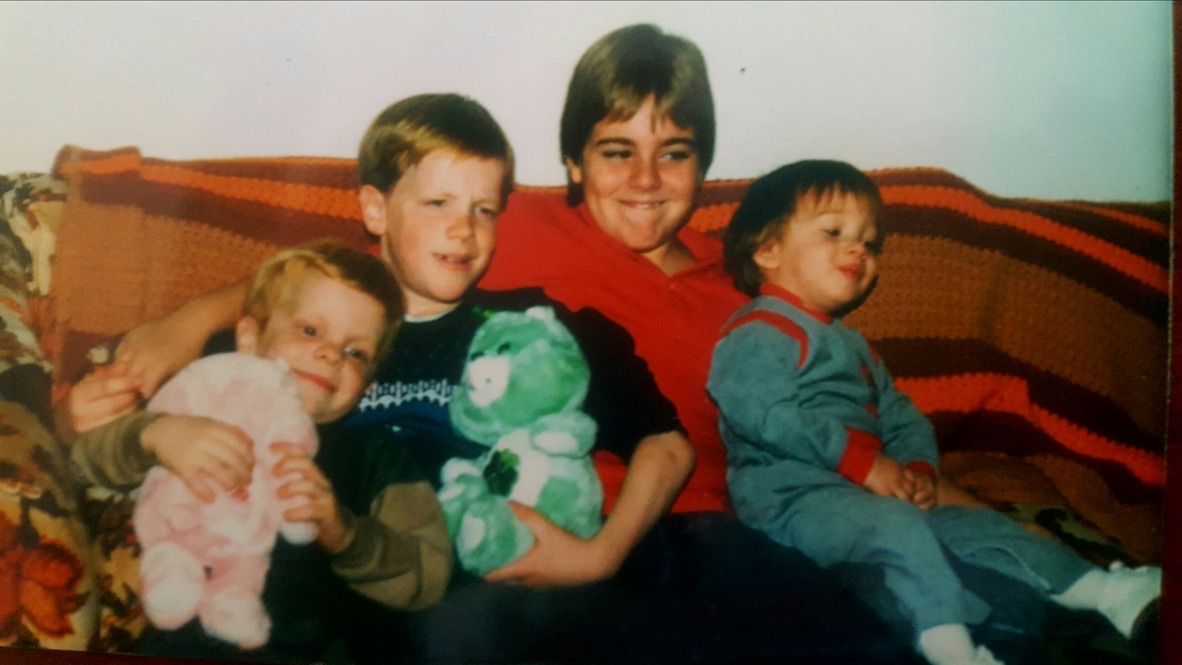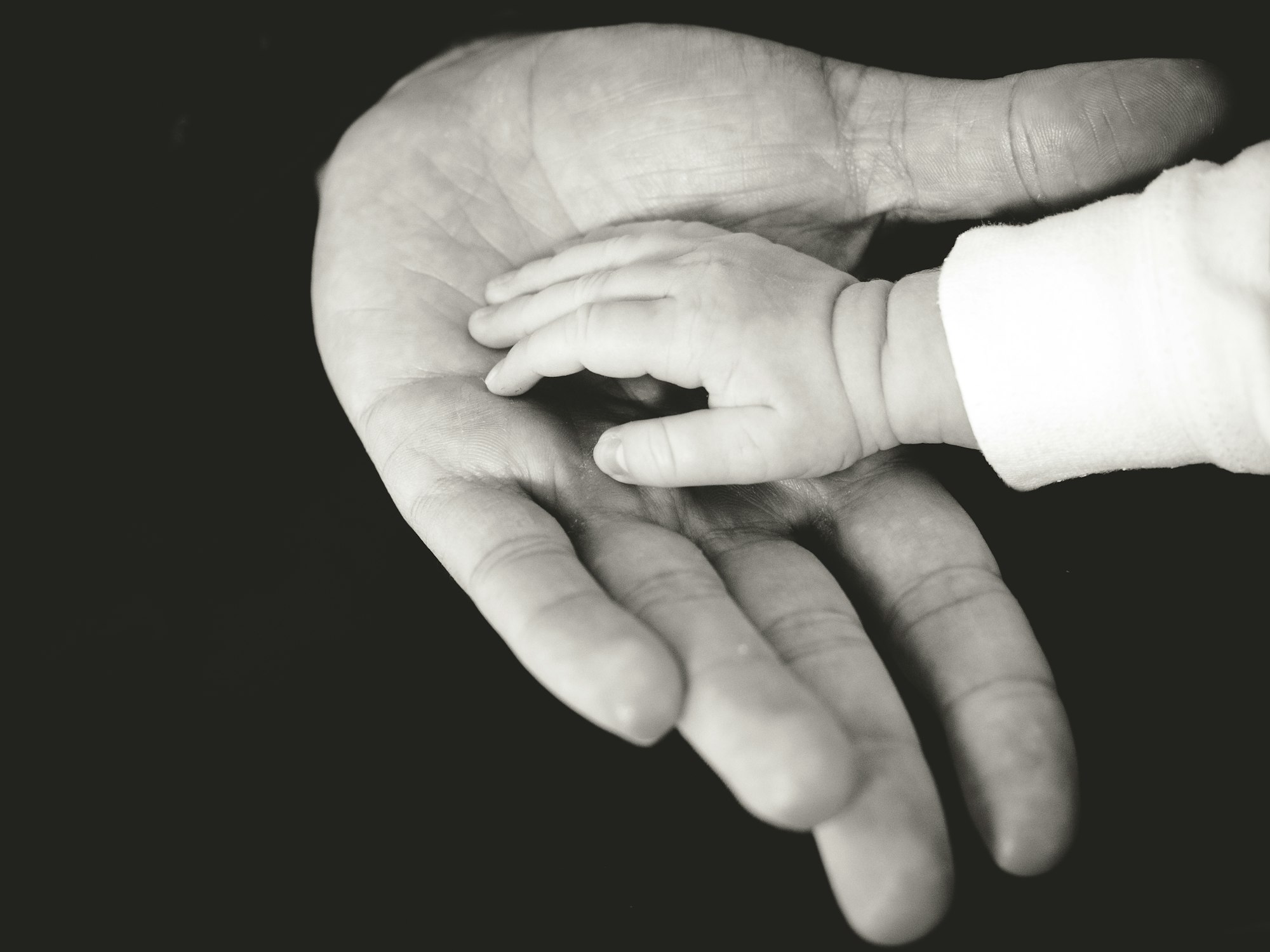Dealing With Grief During The Holidays
The holiday season can be a difficult time for those who are grieving the loss of a loved one. In this post, we offer tips and strategies for managing grief during the holidays, including establishing new traditions, seeking support, and taking care of oneself physically and emotionally.

The grief that comes with the holidays can be difficult to manage. During this time, holiday grief can feel overwhelming when reminders of the person or event being grieved appear everywhere. The grief process is a natural response to loss and it's important for those grieving to give themselves permission to experience their grief in whatever way works for them. It's also important to reach out for support from family and friends during this difficult time.
It may help to establish new traditions or modify old ones to honor the memory of loved ones who have passed away. Avoiding certain places or activities that cause grief isn't necessary either– instead, try incorporating elements into daily life that bring comfort and joy. Grieving people often find solace by volunteering, attending grief support groups, or listening to music that brings back fond memories, Some enjoy a simple holiday dinner.
Acknowledge Your Grief
The grief felt during the holidays doesn't have to take over, but it’s important for those grieving to acknowledge their grief and remember that grief isn't something that can be ignored or 'fixed.' Taking time to honor the memory of a loved one– whether through volunteering, attending grief support group, or just spending time with a supportive family member or friend– can help make the holiday season bearable again. No matter how difficult things may seem, there is hope and comfort in knowing that grief will ease in its own time. Remember, there is no right or wrong way to grieve.
Dealing with feelings of sadness and loss during the holidays
For those experiencing their first holiday season after the loss of a loved one, it can be helpful to remember that grief is a normal part of healing, and that it's okay to take as much time as you need,. It can also help to create rituals or holiday routines that honor the memory of the person who has passed away. Grief takes as long as it takes.
It’s important not to try and carry grief alone during this difficult time, so seeking out support from family, friends, grief counselors or other grief support groups can help make things more bearable. Taking care of oneself physically and emotionally are both necessary steps in managing grief – eating healthy meals and engaging in activities such as yoga, walking, swimming or journaling are all great ways to relax and ease tension. Keeping regular sleep patterns is also key for helping manage grief during the holidays.
The grief that comes with the holidays can be difficult to manage. With patience and kindness towards oneself, the grief associated with the holidays can be managed and even embraced.
Death Anniversaries
Death anniversaries during the holidays can be especially difficult. It may help to acknowledge the grief and remember that grief is a natural part of healing, and it's okay to take the time needed for processing grief. Additionally, grief counseling or bereavement counselors can provide support in managing grief during anniversaries or other special days throughout the year.
Create new traditions or modify old ones for additional help. Engaging in activities that bring comfort such as a holiday ritual or routine can all help make the holidays bearable again. Remember that you are not alone in your sorrow; although grief will never disappear entirely, understanding it, taking care of yourself and sharing your pain, can help ease some of its burdens.
Tips Family Members Can Use to Cope With Grief During the Holidays:
Seek out supportive networks such as family and friends, or counselors for additional help.
Take the time needed to grieve and remember a loved one.
Engage in activities that bring comfort, such as holiday rituals or new traditions.
Nourish your body with healthy meals and engage in physical activities like yoga, swimming, walking or journaling to ease tension and stress.
Practice self-care and kindness, understanding that grief is a natural part of healing.
Know that you are not alone in this journey – there are resources available and new possibilities to discover.
It is important to have realistic expectations of what the holiday season may bring. The holidays may never be quite the same after experiencing loss, but with understanding, kindness towards oneself, it is possible to find comfort.
All of our guides, downloads, worksheets, Premium courses
Click Subscribe To Get Started.
Spending time with loved ones and taking time to share memories can be a meaningful way to remember and honor your loved one. If you are unable to be with family, try connecting with them through video calls or cards. Old traditions can also bring comfort during the holidays; however, if it feels too difficult to engage in old routines, you may consider creating new ones that help celebrate the memory of your loved one and bring joy into the present moment.
Include Children in Your Holiday Plans

Include children in your holiday plans. Spending time with your family, engaging in holiday activities and letting children know that it is okay to talk about their feelings can help them feel included and comforted. Create holiday traditions that honor the memory of loved ones, such as baking a favorite recipe or decorating a Christmas tree together. Spend time reflecting on memories with your family by sharing stories or looking at old photographs. Allow yourself to feel all the emotions without judging them; grieving takes time and it’s important to honor these feelings during this special season.
The holiday season doesn’t have to be characterized by fear or sadness if you are experiencing grief. Grief during the holidays can be a challenging experience, especially when family members are no longer present. It is important to remember that grief takes time and it’s okay to feel all the emotions associated with loss.
Tips for Helping Children with Grief During the Holidays.
Tips to Help Children Cope with Grief During the Holidays Part 1
Children may not always have the words to describe their grief. Children can often express their feelings through activities such as writing a story or drawing a picture.
Children need reassurance and understanding, so helping them talk openly about their emotions is very important. Be patient and allow children to take the time they need to share stories and memories of their loved one.
Create new holiday traditions that honor your loved one’s memory and encourage children to participate in these activities, as it will help them feel connected even if the person isn’t present anymore.
Show love with hugs, kind words, and reminders that things will get better over time. Children need security during this difficult time; let them know that you are there for them.
Children may need more attention and care than usual during the holiday season; make sure to create a safe and meaningful space for children to grieve and heal.
Grief is a unique experience, so it is important to listen to your own needs and feelings. Everyone grieves differently, so don’t be afraid to reach out for help when needed. Remember that healing takes time – but with understanding, and being willing to be open to new possibilities, the holiday season can become a time of celebration again.
Tips for Helping Children with Grief During the Holidays part 2
Helping children cope during the holidays by allowing them to express themselves. Children need reassurance and understanding, so helping them talk openly about their emotions is very important. Children may not always have the words to describe their grief, so activities such as writing a story or drawing a picture can be helpful when it comes to expressing themselves.
Show love with hugs, kind words, and reminders that things will get better over time. Children need security during this difficult time; let them know that you are there for them.
Creating new holiday traditions can also honor your loved one’s memory and bring joy into the present moment. Be open to these possibilities and encourage children to participate in activities like decorating a tree together or baking a favorite recipe. Lastly, spending time reflecting on memories with your family by sharing stories or playing Christmas music, as you put up holiday decorations.
Plan ahead by preparing yourself for the holidays. Reach out to family and friends, plan activities that celebrate life, plan a memorial service or take part in volunteer work. By being proactive and engaging with others, you can create a sense of purpose and find joy during this special season. It is important to remember that grief takes time and it’s okay to feel all the emotions associated with loss.
Explaining Grief To Children
Take the time to honor your loved one’s memory by celebrating their life – whether through reminiscing over old photographs or stories, making donations in their name or participating in other meaningful activities. Participate in activities that bring joy and give back; plan a holiday party for those facing similar losses or adopt a pet from a shelter.
By honoring your loved one's memory with rituals and activities, you can find solace and joy during this special season.
It is not easy grieving during the holidays, but it is important to remember that grief can manifest itself in many different ways; do not feel guilty if the holidays evoke feelings of happiness. Take the time to engage in activities that bring joy and honor your loved ones memory with new traditions. May all those experiencing loss during this special time of year find peace and hope as they move through their grieving process. Wishing you comfort and strength during this difficult time.
Guilt and Grief
Take care of yourself and be gentle with your grief during this difficult holiday. Know that it is okay if it manifests itself differently than you expect or anticipate. As you remember your loved one, may their memory bring comfort during this special season.
No matter how difficult the holidays can be, find solace in spending time with family and friends. Take part in activities that bring joy, create new memories and honor husband's memory with rituals which can help make his presence more tangible during this special season.
Grieving during the holidays can be difficult and isolating. Remember to be patient with yourself and others as we understand that everyone grieves differently. May all those experiencing loss during this special time of year find healing through understanding, patience and kindness towards oneself.
Stages of Grief
Grieving can be one of the most difficult times in our lives, but it's important to remember that everyone grieves differently. Elizabeth Kubler Ross illuminated an understanding between death and dying with her pioneering study on grief stages which were originally based around those who are terminally ill rather than just grieving a loved one’s loss. She identified five main stages: denial, anger, bargaining/guilt, depression and acceptance.
Each person will experience these steps at their own pace; some may return to earlier ones or even skip certain parts altogether – this is all completely normal! Through compassion and care we can aid ourselves through the process while honoring our feelings along the way
Stages of grief can manifest in many ways, so it’s important to remember that everyone is different and experiences grief differently. If you are feeling overwhelmed with emotions, take a break from activities or be sure to seek out extra support if needed.
May all those experiencing loss during this special time of year find solace in spending time with family .
Take the necessary precautions and steps to ensure your mental wellbeing - understanding and patience towards yourself allows space for hope and healing on your journey of grief.
What To Say First Holiday After Death

If you are struggling to find the right words of comfort for those who have lost a loved one, there is no definitive answer. It’s important to be mindful that everyone grieves differently and take into consideration what may or may not bring solace during difficult holidays.
Some Examples of Appropriate Phrases Include:
I am so sorry for your loss
Thinking of you during this difficult time
My deepest condolences
You and your loved one will be in my thoughts this holiday season
When speaking to children it can helpful to focus on the positive memories shared with the individual and include that they are surrounded by love. Take care not to reassure them that everything will be okay as it takes time to feel comfortable with a loss.
It is normal to feel grief or guilt if the holidays evoke feelings of happiness. Let them know it is okay to express their feelings in whatever way they need, and that you are available to support them through this process.
Taking time for yourself during the holiday season can help make the grieving more manageable. What to say first after a loved one’s death can be difficult but think about what may bring comfort and know that there is no right or wrong answer.
Words of Comfort For Loss During the Holidays

No matter the words expressed, words of comfort for loss during the holidays can bring solace. Find joy in paying tribute to your loved one, may their memory bring comfort during this special season. Take care of yourself and remember that it is okay to take a break from the holiday cheer if need be; make sure to listen to what your body needs and take the necessary precautions to ensure your mental wellbeing. Reach out for help if needed . Allowing yourself time and space to grieve during the holidays is important in order to honour your loved one’s memory and feel peace when thinking of them.
May all those experiencing loss during this special time of year find solace in spending time with family, engaging in mental health activities and words of comfort.
Though it can be hard to balance the challenges that come with grief during the holidays, take comfort knowing that there are resources available for those who need additional support. This holiday season, remember your loved one’s memory and offer words of comfort to yourself and others alike.
Our Resources section can help you find the information and tools that you need. We have courses, videos, checklists, guidebooks, cheat sheets, how-to guides and more.
You can get started by clicking on the link below. We know that taking care of a loved one is hard work, but with our help you can get the support that you need.
Click here to go to Resources Section now!
Allow Children to Express Themselves
Allowing children to express themselves is key during this time. When speaking to children it can helpful to focus on the positive memories shared with the individual and include that they are surrounded by love. Take care not to reassure them that everything will be okay as it takes time to process a loss. It is normal to feel grief or guilt if the holidays evoke feelings of happiness. Let them know it is okay for them to express their feelings in whatever way they need, and that you are available to support them through this process.
Tips for Coping with Grief During the Holidays

The holiday season can be a difficult time for those who are grieving, however there are steps you can take to make it more manageable. Here are some tips for coping with grief during the holidays:
Make a plan: Creating and sticking to a plan of how you want to spend your holiday season can help you feel more in control. This includes setting boundaries and deciding when or if you would like to attend gatherings, as well as recognizing what activities may bring comfort and joy.
Reclaim traditions: When possible, attempt to reclaim lost traditions or create new ones that honour them in memory. For example, decorating Christmas ornaments together or other special ways to remember them can help create a sense of peace.
Take time for yourself: Make sure to take time for yourself if needed and make sure to listen to what your body needs. This may include taking a break from holiday cheer or engaging in mental health activities such as journaling, mindfulness or exercise.
Seek support: Reaching out for help is always an option and many resources are available if needed. Allow yourself the space to grieve during the holidays and know that you are not alone.
With these strategies in mind, you can find solace during this special time of year.
Welcome to the Grief Recovery Room

If you are a grieving soul who is going through the tragic circumstances of life then this place has your back. Here, not only will you find solace and acceptance for all that overwhelms within but also an understanding shoulder to lean on coming from those with similar experiences as yours.
Your family may be there at home, lending their constant assistance yet it still doesn't take away the feeling of being isolated or forced into masking up emotions in order to help others cope better - leaving depression and desperation lingering around deep inside instead. For such times when even close ones don’t know what more they can do besides uttering “get over it already!”, come here – where these feelings make sense just how they should without any judgement attached whatsoever!
Our community provides a safe place for those who are grieving. Here, you can find understanding and acceptance from those facing similar feelings of grief—plus comfort if your family or friends don't recognize the depth of what you're going through.
Maybe they want to see strength instead even when that's not how it feels inside; maybe they think you should be "over this" by now but we know different because no two journeys with pain are ever alike. Whatever stage yours is at right now, come connect here so none of us has to face such difficult moments alone.
Share Your Sorrow Writing to Heal

Research shows that expressing your emotions, exploring thoughts and delving into ideas can have a positive impact on our health. It's no surprise then that Dr James Pennebaker from the University of Texas at Austin is an advocate for this approach - he has written extensively about it!
This site provides you with a safe space to write down difficult feelings or experiences which may be causing stresses in life - because tragedy often leads to overthinking and confusion. But don't worry if penning these thoughts feels daunting; writing doesn’t always have to lead anywhere – just by taking part, we start making sense of what's happening around us.
Journaling provides a powerful way to unlock your subconscious and amazing benefits for both physical and mental health. It can act as an emotional release valve which helps us make sense of major life events like losses or traumas that are sometimes difficult to verbalize. Here I have created this safe space just for you so whatever is causing pain in your life has somewhere meaningful where it belongs; on paper! Don't feel pressure if words don't flow immediately either - all varieties and levels of journal entries are welcome here with every bit contributing towards improved understanding & wellbeing.
Grieving the Loss of a Spouse or Lifetime Partner

Going through the death of a long-time partner or spouse is an incredibly difficult process. Unfortunately, there are no easy answers and nothing that can take away your pain completely – but there are ways to cope with it in order to make things more manageable.
It's important not to rush yourself into feeling better; grief has its own timeline and you shouldn't expect healing overnight. You may even find yourself asking how life could continue without them by your side - remembering they'll always be part of who you now will become as well as celebrating their legacy might help on this journey towards acceptance and recovery.
Share Your Story Here
Grieving the Loss of a Father

Grieving the loss of a father is an inevitable journey that none of us are completely prepared for. It's natural to experience guilt, regret and sadness in our attempt to grapple with the immense void felt when we lose someone so dear.
Everyone remembers their dad differently; whether it be from fond memories or words unspoken, his presence will leave an everlasting mark on your life no matter what stage you're at as you embark this process together. Reach out and express how you feel- not just internally but through speaking openly about it -ensuring those treasured moments live forever
Share Your Story Here
Grieving the Loss of a Mother

For many of us, the loss of a mother is an incredibly difficult experience. With her presence gone, we face our own mortality and struggle with myriad emotions that arise from this life-altering event. I personally experienced such grief at 18 years old; as the oldest in my family it was especially hard for me to come to terms with how much losing my mom would mean for not only myself but those around me.
My entire outlook on death changed due to this tragedy; throughout life I'd longed for her beside me during significant moments like when becoming pregnant or bearing witness after one of my son's passing away - these were times where all too acutely felt absence grated further against what heartache remained. Thankfully however, by recognizing healing can take time yet ultimately be achieved .
Share Your Story Here

Losing someone close to you can be devastating. Depending on the relationship, sadness and pain are all normal reactions when experiencing grief. Everyone processes loss differently - our unique personalities or cultural backgrounds may influence how we cope with this difficult period of time; however it's important to remember that there is no one 'right' way for us mourn a loved one.
Not only will you miss their physical presence in your life but also shared moments such as conversations, secrets and even simply seeing their smile could lead you feeling an immense void inside yourself. This experience may further remind us about our own mortality which can bring its own set of worries during periods of intense sorrowful emotion
Please Share Your Story Here
Grieving the Loss of a Sibling (Brother or Sister)

Grieving the loss of a sibling is an incredibly difficult experience, one that no amount of preparation can prepare you for. However, it's important to recognize this pain and find ways well-suited to your individual situation in order navigate through such emotions properly.
Sibling grief is unfortunately often neglected or ignored due solely its misunderstanding - but don't let anyone else dictate how fast you should work towards recovery; give yourself time and space when needed as there ultimately isno set timeline on healing from heartache.
You'll eventually reach a point where life will go on –find solace by connecting with others who are going through similar situations now just like yours before–it may help make the journey ahead less intimidating.
Please Share Your Story Here
Grieving the Loss of an Infant or Child

After the tragic loss of an infant or child, parents can feel overwhelmed by emotions and uncertain about their future. All too often they grapple with guilt over what could have been different in hindsight - "if only I had done this" - creating a deep emptiness within them that never seems to heal. It's normal for these feelings to come up after experiencing such heartbreaking grief; there is no quick fix but understanding one shared sorrow makes facing it more bearable than going through it alone.
Please Share Your Story Here
Grieving the Loss of an Adult Child

Grieving the passing of an adult child devastates many parents in ways they never expected. What makes this loss so difficult is how it goes against nature - we are not supposed to outlive our children, and yet here you stand facing a tragedy that no amount of life experience could have ever prepared you for.
Although most people mean well when trying to offer support or solace, their words can often feel shallow as if your grief isn’t valid because the deceased wasn't an infant; what these individuals may be unaware of however is how special the bond between parent and adult child truly was - perhaps transcending into friendship with time spent together cherishing accomplishments achieved along life's journey.
Please Share Your Story Here
Dealing with the Loss of a Grandparent

Grandparents often bring a unique and special kind of love into our lives, so the loss when they pass away can be hard to bear. I recognize this feeling in many young people that have taken care of their grandparents for an extended period as illness or aging progressed.
Painful feelings such as guilt may arise due to not visiting regularly or calling enough, but it's also important remember all the wonderful stories your grandparent told you with their wisdom gained from years living life - these cannot be lost! Begin sharing here together on this platform if you're looking for solace during times like these; we hope that connecting with other individuals going through similar experiences helps begin healing.
Please Share Your Story Here
Dealing with the Loss of a Pet

The relationship between a human and their pet can be incredibly strong, with love that borders on the unconditional. But when our beloved pets cross over to Rainbow Bridge, we may feel an intense grief and sadness as if they were part of the family - something which some people who do not own animals don't always comprehend.
Do not allow yourself to become overwhelmed by guilt or shame; mourning is natural after losing any member of your circle- even those whom society might refer to as "just" a pet! Each person will cope differently during this difficult time: it's ok for you express all kinds of emotions including sorrow.
Please Share Your Story Here
Myths Of Grief
No matter the loss, myths of grief tend to persist. One myth is that time will automatically heal all wounds - this simply isn't true! It's important to understand that grieving is a process and there are no set rules or expectations for how long it should take. Allowing yourself to feel all emotions while seeking out help from professionals can be beneficial to the healing process. It is never too late to start - together we can make peace with our pasts, and move forward into a brighter future.
There is no such thing as closure. The idea of closure implies that once something is done or finished, it can be “tied up in a bow” and forgotten. In reality, losses are never forgotten - they stay with us forever. All we can do is strive to find peace within our memories and continue living life in spite of our grief.
No matter what myths of grief you may have heard, don't forget that everyone's journey through the grieving process will be different. Offer yourself the empathy, understanding, and compassion you need to get through this time and reach out for help if needed; there are many resources available to assist those who are struggling with grief. Together on this platform, we hope to break down myths about how grief should look like so that everyone can find a safe space to heal.
Ignoring your pain and it will go away. This is a dangerous myth. Grief doesn't just go away on its own and can, in fact, get worse if it is not properly addressed. Vulnerability takes courage but allowing yourself to experience and express feelings of sadness, anger or guilt can open the door for true healing. Seeking out help from mental health professionals can also be extremely beneficial in navigating through complex emotions related to grief.
Remember: myths of grief are still myths - don't let them define your own journey! Everyone's grieving process looks different - some may take longer than others, while some may need more support than usual. Find that which works best for you and trust that your individual path will lead you back to joy again someday soon.
Grief and mourning are the same. Grief is an internal process of emotion that one experiences when faced with a loss, while mourning is the external expression of this process. Mourning can be expressed in many ways- from talking openly about it to participating in rituals or activities that can help bring comfort and closure.
It's important to remember that myths of grief do not define our reality. Everyone will experience different emotions during their grieving process - be it sadness, anger, numbness, guilt or despair - and there is no set timeline for how long this should take. Respect yourself and give yourself permission to grieve in whatever way feels right to you. Don't forget: you are strong enough to get through this difficult time!
The first year is the hardest. This myth implies that once the first year of grieving has passed, it will be easier to move on. In reality, grief is a process and not something that can be cured or resolved in a specific amount of time. Each person's journey through the grieving process will look different - some may find comfort sooner than others, while for some the hard times may last longer. It's important to remember that whatever your timeline looks like, you are never alone on this journey. Reach out for help from friends, family and mental health professionals if needed!
Grief has an endpoint. It may dim over time, but grief is never really "over". Although the intensity of emotions might decrease with time, it's important to remember that grieving a loss is an ongoing process. Allow yourself to feel your own emotions and be kind to yourself - you are strong enough to get through this! Reach out for help if needed and know that there is no right or wrong way to experience grief.
You don't need help when grieving. This myth implies that individuals should try to cope on their own when in dealing with loss; however, getting the help and support from friends, family members and mental health professionals can go a long way in helping someone work through their grief. Reaching out for help can also provide guidance on how best to cope with feelings of sadness, anger and guilt. Don't be afraid to ask for help - you are not alone!
These myths of grief can lead to a dangerous misunderstanding of the grieving process. It's important to remember that everyone deals with loss differently and needs to find their own way of healing and recovering from trauma. Allow yourself to feel your emotions, find comfort in whatever works best for you, and above all else, don’t forget that you are strong enough to get through this difficult time! Reach out for help if needed and take care of your mental health so that everyone can find a safe space to heal.
If you're not crying you're not grieving. Tears are usually the first physical sign that someone is grieving, but this doesn't mean that those who don't cry are not in pain. Everyone processes their grief differently - some might express their emotions through talking, writing or participating in rituals, while others might find comfort in activities like yoga or meditation. It's important to remember that whatever your grieving process looks like, it is acceptable and normal.
Grief gets better over time. While it is true that the intensity of emotions can decrease over time, grief is never really "over". Grieving a loss doesn't have an endpoint and it's important to acknowledge that each person's journey through healing will look different. Reach out for help if needed and take care of your mental health so that everyone can find a safe space to heal.
Grief is an emotion. While grief is an emotion, it's much more than that. Grief is a multifaceted response to loss and includes psychological, social, physical, spiritual and behavioral reactions. It's important to acknowledge that everyone deals with grief differently - some might find comfort in talking about their experiences with loved ones, while others might need more time alone to process their emotions.
Time heals all wounds. While time may ease the pain of grief, it doesn't heal all wounds - rather it allows people time to adjust and adapt after their loss.
Grief is a burden. Grief is often misunderstood and seen as a burden, but it doesn't have to be. Get creative in finding ways to express your emotions - participate in rituals, keep a journal or practice mindful activities like yoga. Reaching out for help from family members or mental health professionals can also go a long way in providing guidance on how best to cope with feelings of sadness, anger and guilt. Don't forget: you are not alone!
Grieving means forgetting the person who passed away. Grieving doesn't mean that someone has forgotten the person who passed away; rather it is a process of honoring their memory while healing from the trauma of loss. Engaging in activities such as writing letters, talking about memories or participating in rituals can be great ways of honoring the person who passed away while still finding comfort in your own emotions. Don't forget to take care of yourself during this time and seek out help if needed.
Grief is a burden. Grief is often misunderstood and seen as a burden, but it doesn't have to be. Get creative in finding ways to express your emotions - participate in rituals, keep a journal or practice mindful activities like yoga. Reaching out for help from family members or mental health professionals can also go a long way in providing guidance on how best to cope with feelings of sadness, anger and guilt. Don't forget: you are not alone!
Grieving means forgetting the person who passed away. Grieving doesn't mean that someone has forgotten the person who passed away; rather it is a process of honoring their memory while healing from the trauma of loss. Engaging in activities such as writing letters, talking about memories or participating in rituals can be great ways of honoring the person who passed away while still finding comfort in your own emotions. Don't forget to take care of yourself during this time and seek out help if needed.
Grief is a burden. Grief is often misunderstood and seen as a burden, but it doesn't have to be. Get creative in finding ways to express your emotions - participate in rituals, keep a journal or practice mindful activities like yoga. Reaching out for help from family members or mental health professionals can also go a long way in providing guidance on how best to cope with feelings of sadness, anger and guilt. Don't forget: you are not alone!
Grieving means forgetting the person who passed away. Grieving doesn't mean that someone has forgotten the person who passed away; rather it is a process of honoring their memory while healing from the trauma of loss. Engaging in activities such as writing letters, talking about memories or participating in rituals can be great ways of honoring the person who passed away while still finding comfort in your own emotions. Don't forget to take care of yourself during this time and seek out help if needed.
All of our guides, downloads, worksheets, Premium courses
Click Subscribe To Get Started.
Our Resources section can help you find the information and tools that you need. We have courses, videos, checklists, guidebooks, cheat sheets, how-to guides and more.
You can get started by clicking on the link below. We know that taking care of a loved one is hard work, but with our help you can get the support that you need.
Click here to go to Resources Section now!





